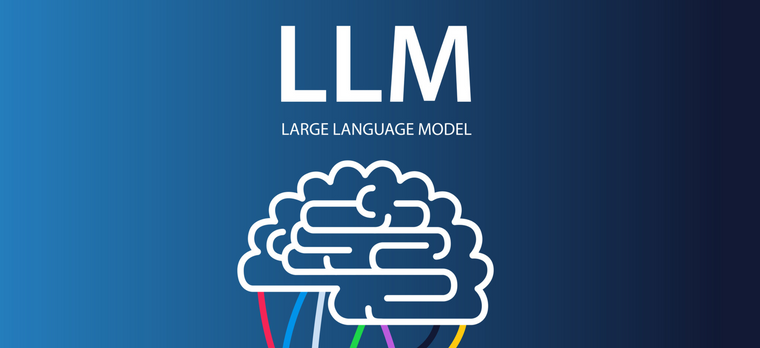The Future of Market Research: How AI and Machine Learning Are Shaping the Industry
Discover how AI and machine learning are revolutionising market research, enabling deeper insights, predictive analytics, and personalised strategies to drive business success.

Market research has long been the backbone of informed business decision-making, providing critical insights into consumer behaviour, market trends, and competitive landscapes. However, the advent of artificial intelligence (AI) and machine learning (ML) is transforming the field, offering unprecedented opportunities for deeper insights, faster analysis, and more accurate predictions. As these technologies continue to evolve, they are reshaping the future of market research in profound ways.
AI and Machine Learning: Revolutionising Data Collection and Analysis
The sheer volume of data generated today is staggering. According to Whats The Big Data, 90% of the world’s data has been created in the last two years alone, with over 2.5 quintillion bytes of data produced daily. Traditional methods of data collection and analysis, while still valuable, are increasingly inadequate for handling this deluge of information. AI and ML are stepping in to fill the gap, enabling researchers to process vast datasets with speed and precision.
AI and machine learning are transforming market research by enhancing business operations and decision-making. The University of Leeds reports that AI can improve business efficiency, potentially reducing costs by 30% by 2035. AI-powered chatbots are cutting response times by 60% and customer service costs by 50%. AI tools analyse data 100 times faster than traditional methods, providing deeper insights and helping businesses adapt quickly to market changes.
AI-Driven Insights into Consumer Behaviour
AI has come a long way in advancing market research, with pioneers like Ipsos delving into its potential to enhance consumer understanding as early as 2020. By examining vast datasets, AI now enables companies to interpret consumer needs and preferences more deeply than ever. Retrospective analyses of social media, purchasing patterns, and digital engagement help market researchers build comprehensive audience profiles. This evolution allows companies not only to track trends but also to better anticipate shifts in consumer behaviour. For more on how these insights have developed, see Ipsos's Understanding Your Consumers with AI in Market Research.
Enhanced Predictive Analytics
One of the most significant contributions of AI and ML to market research is in the realm of predictive analytics. By analysing historical data, machine learning algorithms can identify trends and predict future outcomes with remarkable accuracy. This predictive power is invaluable for businesses looking to stay ahead of the curve, whether it's forecasting sales, anticipating market shifts, or understanding evolving consumer preferences.
For example, a report by Accenture found that companies using AI for predictive analytics saw a 20% improvement in decision-making accuracy and a 30% increase in operational efficiency. This capability allows businesses to make more informed decisions, reduce risks, and seize opportunities as they arise.
Personalisation and Hyper-Targeting
The rise of AI and ML is also enabling a new level of personalisation in market research. These technologies can analyse individual customer data to create highly personalised marketing strategies. For instance, Netflix’s recommendation engine is powered by machine learning algorithms and is responsible for over 80% of the content watched on the platform. This level of personalisation not only enhances customer experience but also drives engagement and loyalty.
In market research, this means that businesses can now target specific segments of their audience with tailored messages and offerings, leading to higher conversion rates and better customer satisfaction. A study by Deloitte found that companies leveraging AI for personalisation saw a 10-30% increase in marketing ROI.
Automation and Efficiency Gains
AI and ML are also driving efficiency in market research by automating time-consuming tasks. Survey design, data cleaning, and analysis are areas where AI can significantly reduce manual effort. For example, AI-driven survey tools can automatically generate questions based on previous responses, ensuring that surveys are both relevant and comprehensive.
Moreover, AI can quickly analyse large datasets and produce insights in real-time, allowing businesses to respond to market changes faster than ever before. According to PwC, AI could contribute up to $15.7 trillion to the global economy by 2030, with much of this value coming from productivity gains driven by automation.
Challenges and Considerations
While AI and ML offer tremendous benefits, they also present challenges that the market research industry must address. One significant concern is data privacy. As AI relies on vast amounts of data, ensuring that this data is collected, stored, and used ethically is paramount. The General Data Protection Regulation (GDPR) in Europe and similar regulations globally highlight the importance of privacy in the age of AI.
Another challenge is the potential for bias in AI algorithms. If the data fed into an AI system is biased, the outputs will be as well. This issue underscores the need for transparency and fairness in AI-driven research. As a 2020 study by MIT Sloan Management Review notes, "Addressing algorithmic bias is critical to ensuring that AI supports, rather than undermines, the integrity of market research."
The Road Ahead: AI and ML in Market Research
As AI and ML technologies continue to advance, their impact on market research will only grow. The future promises even more sophisticated tools capable of delivering deeper insights and more accurate predictions. However, the human element of market research remains irreplaceable. AI can augment human capabilities, but the interpretation of data, the understanding of context, and the application of insights to real-world decisions will always require human expertise.
In conclusion, AI and machine learning are not just tools - they are catalysts for innovation in market research. As these technologies reshape the industry, businesses that embrace them will be better equipped to navigate the complexities of the modern market, stay ahead of competitors, and meet the evolving needs of their customers. The future of market research is undoubtedly bright, and AI and ML are leading the way.
If you found this exploration of how AI is transforming market research intriguing, you might also enjoy our article on Integrating AI into Market Research. It offers further insights into how AI technologies are being seamlessly woven into market research strategies and the benefits they bring to the industry.


